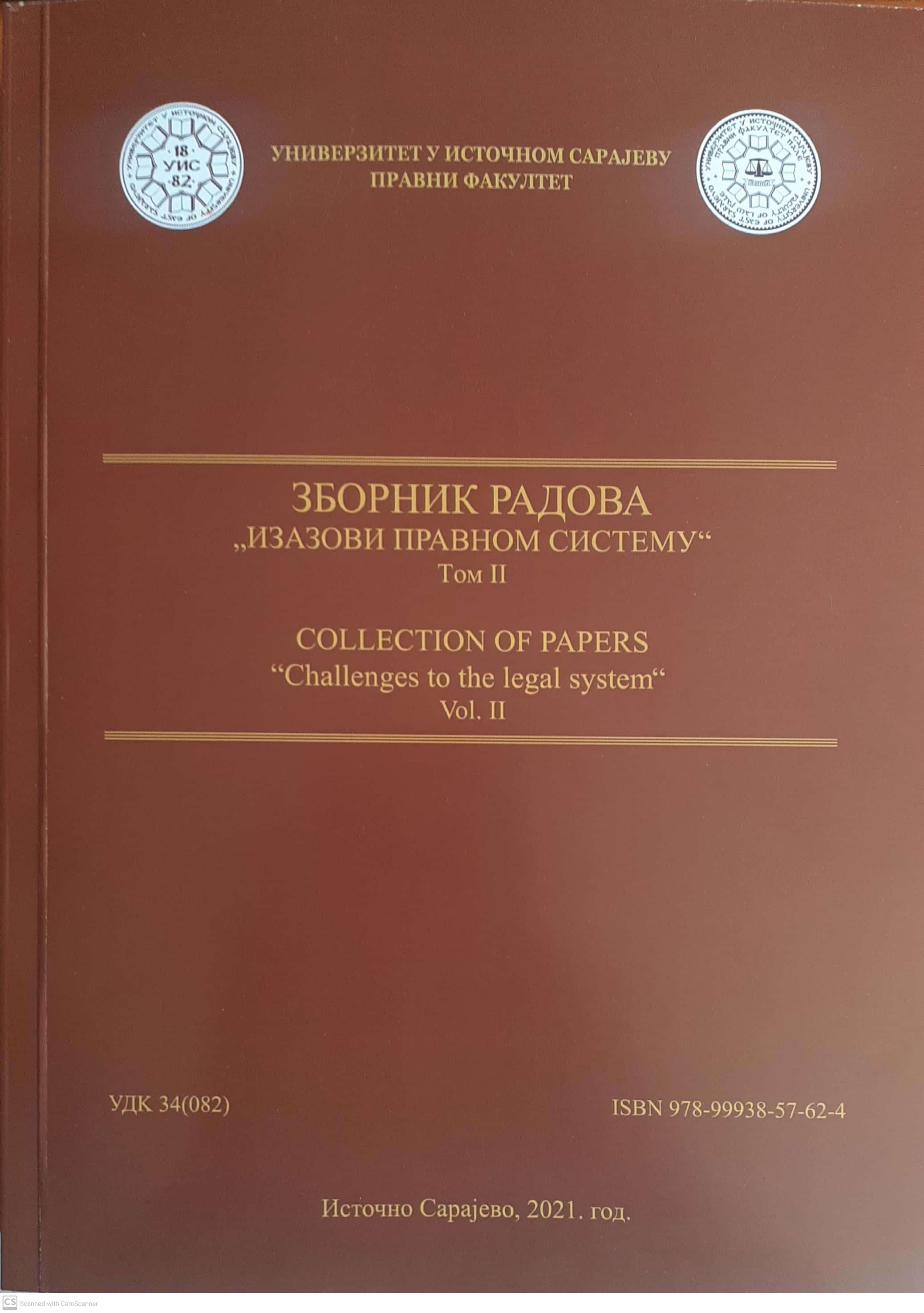Термини облигационог права у држави Првог српског устанка
The Terms of Law of Obligations in the State of the First Serbian Uprising
Author(s): Uroš Stanković
Subject(s): Law, Constitution, Jurisprudence, Political history, 19th Century
Published by: Правни факултет Универзитета у Источном Сарајеву
Keywords: The First Serbian Uprising; Legal terminology; Law of obligations; Turkish loanwords; Slavic loanwords;
Summary/Abstract: The paper sheds light on the terms primarily belonging to the terminology of law of obligations appearing in the texts originating from the state of the First Serbian Uprising. The author shall list the terms, provide the explanation of their etymology and as for loanwords, specify when they entered Serbian language. The texts created in the state of the Uprising contain the terms equivalent to: bound by a contract obligation, parties to an obligation, modifications of legal transactions, certain sorts of contracts, contracting parties,security, claim and debenture.Bound by a contract was termed ‘obeščati se/obještati se/obješčati se’,‘obvezati se/obavezati se’, ‘obligirati se/oblegirati se’ (‘to promise oneself’) and ‘podvezati se’ (‘to tie oneself from below’). The terms for the parties of an obligation were ‘dužnik’ (‘debtor’) and ‘kreditor’ (‘creditor’). ‘Termin’ (‘term’), ‘rok’ (‘deadline’) and ‘ugovor’ (‘condition’) were used for the modifications of legal transactions. The terminology of security consisted o ffour terms: ‘zaloga/zalog’ (‘pawn’), ‘kapara’ (‘deposit’), ‘pišmanluk’ (‘cancellation fee’) and ‘jemac’ (‘bondsman’). ‘Tražiti’ and ‘iskati’ meaning ‘to search for’ and ‘istraživati/iztraživati’ (‘to inquire’, ‘to investigate’) were the terms in use for ‘claim’. A borrowing from Latin ‘obligacija’ (‘obligation’) had the meaning of debenture. The terms mostly come from folk language, which is understandable; taking into consideration that law of obligations is very present in everyday life of the people as the law related to goods exchange. Turkish loan words were to the most extent used for naming various sorts of contracts and the parties to contracts, which is doubtlessly the result of business contacts with the Turks during the Turkish rule over Serbia. The other borrowings were present in all fields of the terminology of law of obligations and were in usage not only for the terms for which Serbian words had not existed yet, but also for those already being a part of Serbian vocabulary. As to the latter, their presence was no doubt consequence of the striving to use the ’language of educatedness’ in the formal texts.
Book: Зборник радова "Изазови правном систему" Том II
- Page Range: 471-486
- Page Count: 16
- Publication Year: 2021
- Language: Serbian
- Content File-PDF

